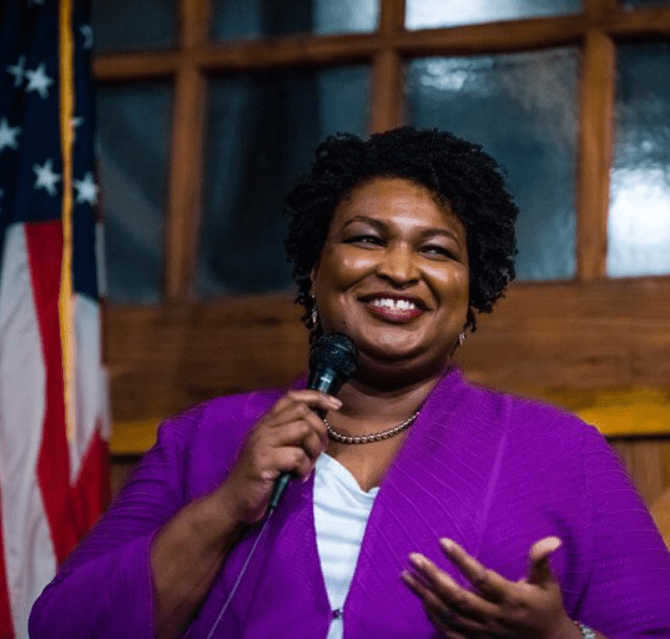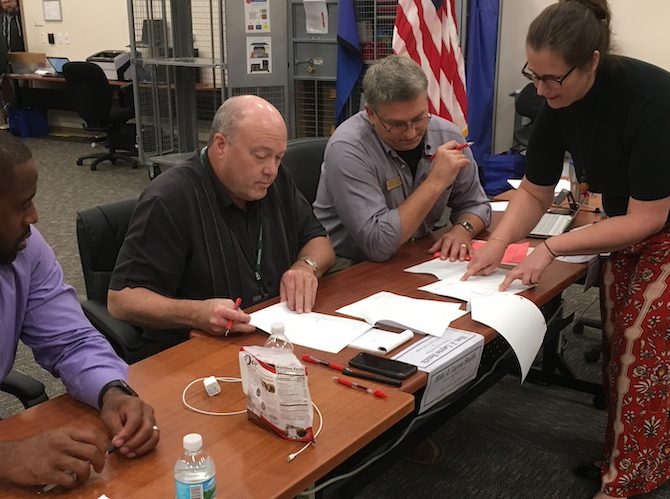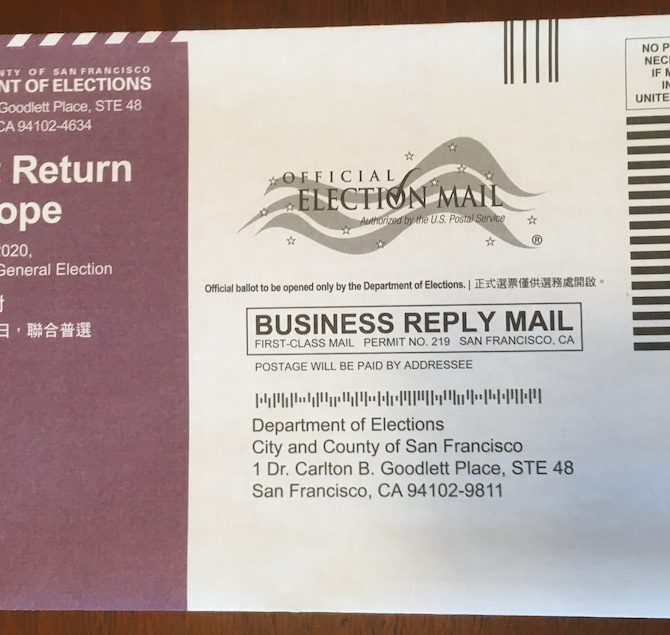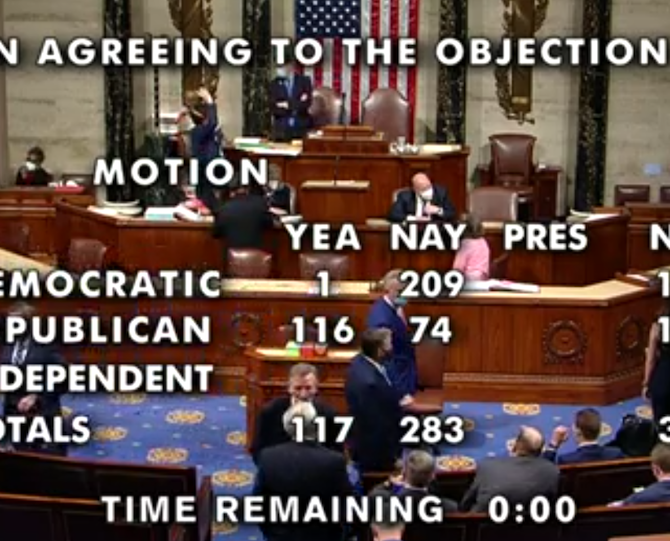Presidential Election Winner May Be Known Quickly, Leading Scholar Says
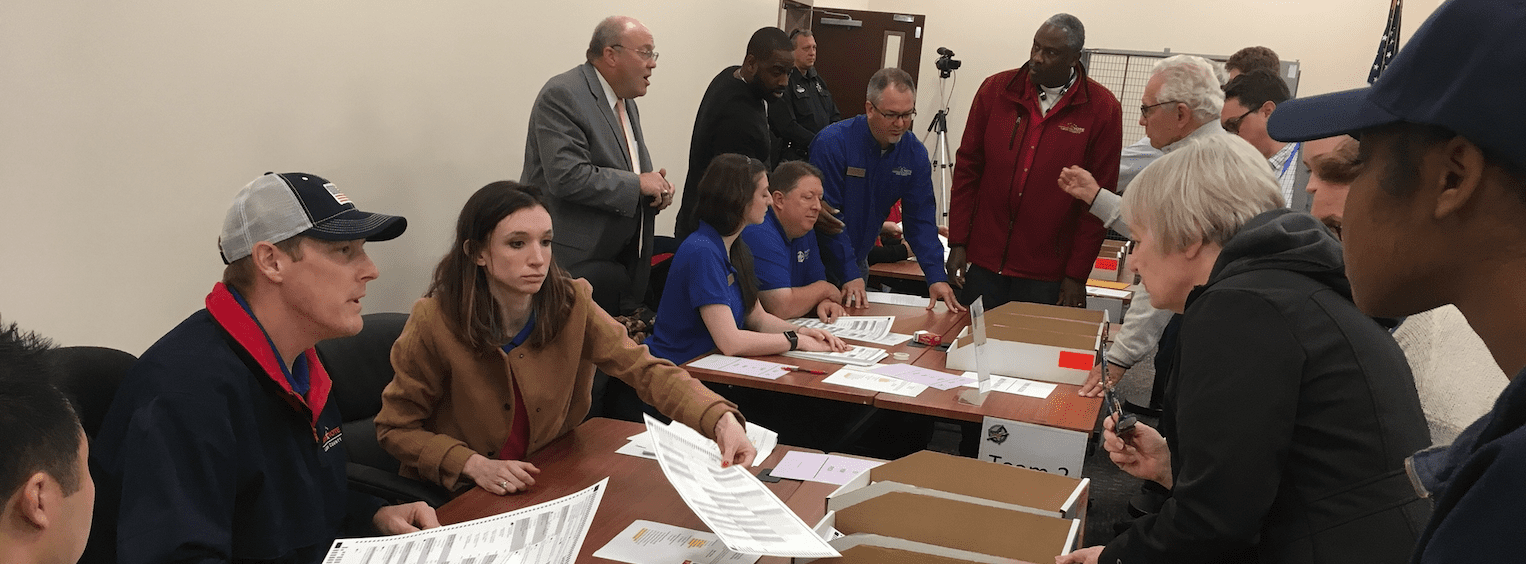
(Photo by Steven Rosenfeld)
Voters may know the results of the 2020 presidential election sooner than many pundits and election experts have been saying—possibly on election night, November 3, or the next day, according to Nathaniel Persily, co-founder of the Stanford-MIT Healthy Elections Project.
“I actually think that we will be very likely to know who the winner of the presidential election will be within 24 hours after the polls closing,” Persily said during a discussion last week with several dozen peers during the American Political Science Association’s annual meeting. “I also think there are dangers with us overstating the potential for a sh*tshow in the proceeding weeks after the election.”
Persily is one of the nation’s foremost democracy scholars. He has had major roles in some of the most bitter recent electoral disputes, such as being the court-appointed expert to craft redistricting plans for Pennsylvania, North Carolina and Georgia. The Stanford-MIT Healthy Elections Project has tracked the nuts and bolt details of running elections in the pandemic.
Many media organizations have been reporting on “nightmare scenarios” for November, where delays in counting the various ballots (by mail, in-person, etc.) would allow President Trump to prematurely declare victory based on incomplete Election Night results, and then attack the ongoing vote count if the lead shifted to Joe Biden (as many have predicted).
“I’ve written plenty of things that said we need to wait, the [TV] networks need to wait to call the races, and the like,” Persily said. “But I’ve now come to the view that we are going to know enough about the results in Florida, Texas, North Carolina, Maine and New Hampshire within several hours of the polls closing; that we will be able to make really good inferences about who won this election.”
He also cautioned on pushing the TV networks to wait if there was clear evidence of the winner.
“The impulse that we are forcing on the networks, by urging everybody to wait no matter what the evidence may show—right, we might be facilitating the kind of disinformation filling the vacuum that Trump and others would propagate,” Persily said. “This is a very difficult tightrope to walk, right, where we say ‘Don’t treat this like any other normal election, there are going to be mail ballots that are outstanding.’ But if Florida on Election night is tied, that means that Biden has won this election.”
He then pointed to a key county in the heart of Pennsylvania, which Trump won in 2016.
“If you look in Berks County, Pennsylvania, and you see that compared to 2016 that Trump is underperforming by four points, that means that Biden will have won Pennsylvania,” Persily said. “There’s enough information that we will have on Election Night—and especially since you [APSA panel chair Franita Tolson] and [participant and election scholar] Rick [Hasen] will be on CNN. I think it is important to understand that there are downsides to the waiting and saying, for that matter, telling everyone to expect litigation and all kind of fights. I’m not sure [Sen.] Marco Rubio’s impulse to move the [2020 Electoral College’s meeting] date back is actually a good one… If there is going to be a quick victor, it is probably going to be Biden.”
Persily was not alone in suggesting the presidential winner could be known sooner than many people think, even if some big states will keep counting ballots for weeks. Marty Wattenberg, a University of California Irvine (UCI) political science professor said on a recent UCI Law School “Are We Prepared” panel that Florida’s results would be known quickly on Election Day. Arizona’s results also should be known quickly, as the state starts counting most if its votes (absentee ballots) in mid-October.
Where the post-election scenarios get dangerous, Persily said, was not having a clear winner 10 days after November 3. Many legal scholars share that view.
“If we are in that situation, I think all bets are off given this political environment,” he said. “If this election is not clear within 10 days of the vote, then it becomes less a legal question and more like a brute force question; as to whether people are going to be willing to align with their tribes or more willing to decide with the rule of law.”
At that juncture, the question would be how far partisans would go to seize power.
“The question is the question—if you saw the movie The Recount—[that arose] when Ron Klain [former Vice-President Al Gore’s chief of staff] is listening to Al Gore and [pondering] whether they will go a little bit further right after the Supreme Court issues its decision” in Bush v. Gore, Persily said. “There is no way that anything is going to be left on the table by either one of these [2020] candidates if there’s another avenue of either using political force or another lawsuit and the like.”
Persily said he was sharing this scenario because he and MIT’s Charles Stewart, the co-founder of the Stanford-MIT Healthy Elections Project, were thinking about writing “a possible article on ‘What to Expect When You’re Expecting Election Results.’ Part of that is to educate people on what the process is. Here’s what they are doing at this point, [and] at this next point…
“I’ve also contemplated what other entertainment to have the day after the election while everyone is twiddling their thumbs and watching Trump’s Twitter feed.”



